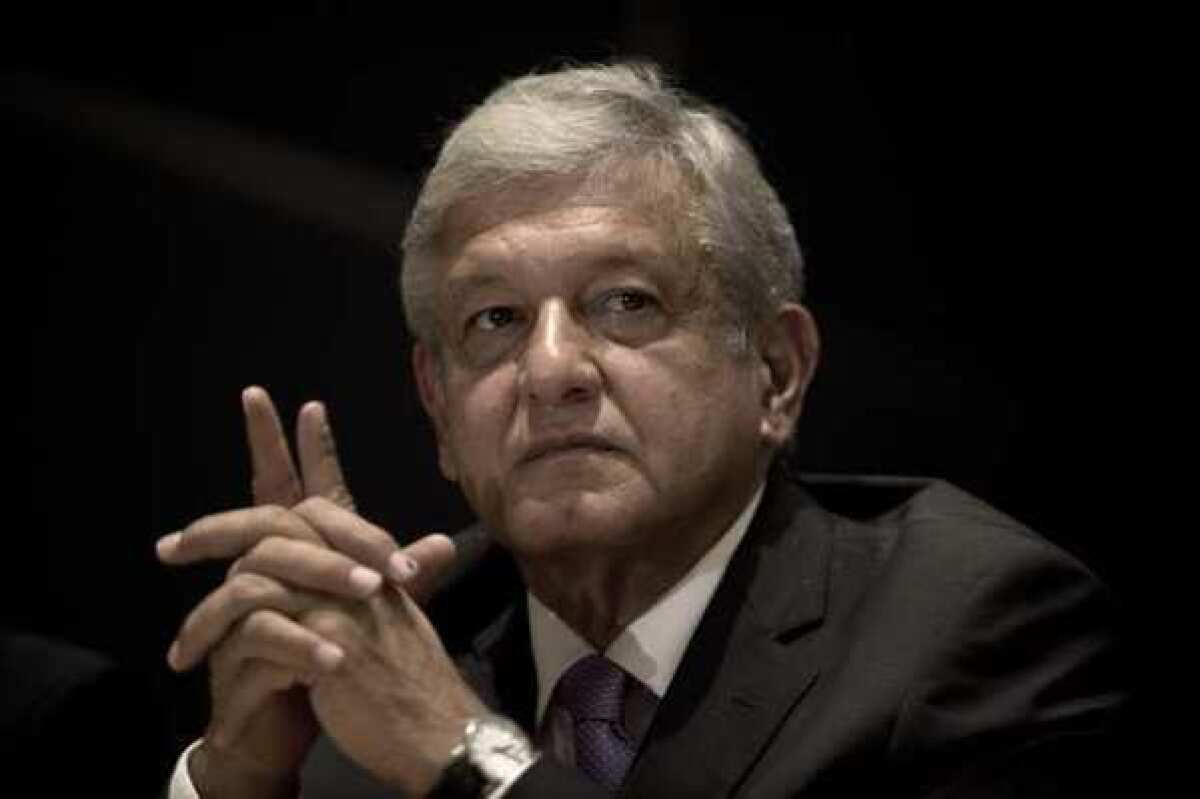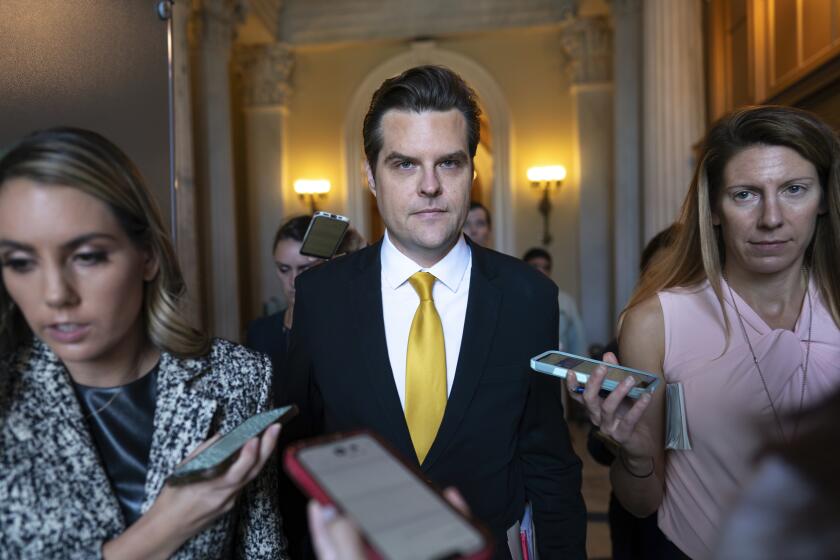Take the high road in Mexico

At the beginning of May, with a couple of months to go until the Mexican elections, I interviewed Andres Manuel Lopez Obrador, the presidential candidate of the leftist Democratic Revolutionary Party. We spoke for more than an hour, most of which he devoted to his usual talking points about how todayâs Mexico is a cabal of rich men who operate in cahoots with a corrupt political system obsessed with self-preservation.
I had heard it all before, as had the Mexican electorate, which rejected Lopez Obradorâs bid for the presidency last month, giving the victory to his Institutional Revolutionary Party, or PRI, opponent, Enrique PeĂąa Nieto, by more than 6 percentage points. But just before my interview time ran out, I asked Lopez Obrador one final question: âHow should I explain who you are ⌠to my 4-year-old son?â He didnât hesitate: He should be characterized âas a social leader, a fighter.â
In filing a court challenge to the election results earlier this month, Lopez Obrador made clear that he is serious about reinforcing at least the âfighterâ part of his reputation. But does he really have his countryâs best interests at heart?
On the evening of the presidential election on July 1, as soon as Mexicoâs electoral commission announced the results of its widely respected âquick count,â the National Action Partyâs Josefina Vaquez Mota and the New Alliance Partyâs Gabriel Quadri quickly conceded. Outgoing President Felipe Calderon congratulated PeĂąa Nieto on his victory on national TV.
Lopez Obrador, however, held back.
In the days that followed, he rejected not only the âquick countâ but also the official final vote tally. He demanded a recount of ballots from polling places overseen by 1 million average citizens. More than half of the ballots were retallied, and once again the count found PeĂąa Nieto leading. Lopez Obrador dismissed that finding as well.
He is now seeking the annulment of the election on every ground he can think of. He has spoken of a sense of general unfairness, of media bias, of the perverse and deliberate inaccuracy of the polls and of what he and his followers have deemed to be âmassive vote buyingâ by the PRI, which dominated Mexican politics for seven decades before being ousted from power in the 2000 presidential election.
The court has until early September to decide whether Lopez Obradorâs claims have merit. Meanwhile, his disgruntled supporters are going to Twitter, Facebook and YouTube to push their assertions that the election was unfair. But social-media-generated indignation does not a judicial invalidation make.
To prevail, Lopez Obrador would have to prove that the PRI acted illegally in winning the election, that it bribed voters, that the vote count was crooked or that the media acted unscrupulously and illegally in promoting PeĂąa Nietoâs candidacy. According to many legal experts, Lopez Obrador is highly unlikely to convince the court. Nor has he been able to sway public opinion: A recent poll by the newspaper Reforma found that two-thirds of Mexicans (including a majority of those in Lopez Obradorâs own party) think he should stop his fight.
But if the courtâs decision doesnât favor him, Lopez Obrador will be faced with a familiar decision: whether to finally accept the verdict of Mexican institutions, or to continue his seemingly interminable battle against them.
One can argue that challenges such as this are healthy and help contribute to the strength of Mexicoâs democracy. But part of living in a democratic nation is accepting the verdicts of its institutions. If Lopez Obrador were to reject the courtâs decision and encourage social unrest (however peaceful), that would undermine rather than strengthen the nationâs democratic progress.
Since 2000, Mexico has steadily built its democratic institutions, and it has made remarkable progress. Thatâs not to say it is perfect. Money still flows under the table and votes are still bought. The political parties have, unfortunately, gained some influence over the countryâs election commission, which is supposed to be independent. But things are nevertheless far better than they were.
If the law was broken in the election, the nationâs courts should intervene. But if they rule that the election violated no laws, Lopez Obrador should accept the will of the majority (those 18 million voters he has called âmasochistsâ). If he thinks Mexican election laws need changing to strengthen the democratic process, then he should work through the system to effect those changes.
Taking the high road is never easy, but there are politicians who have done it admirably. In 2000, Al Gore had to decide whether to accept the defeat dealt him by a single vote in the Supreme Court. Gore knew that democracy probably hadnât been served, yet he accepted the verdict with grace: âWhile I strongly disagree with the courtâs decision,â he said on hearing the decision, âI accept it. For the sake of our unity and the strength of our democracy, I offer my concession.â
For a man groomed for the presidency from an early age, capitulation must have been extremely difficult. Still, Gore did what he felt was best for the country and its democratic institutions. If Lopez Obrador needs a model, he need look no further than Gore.
LeĂłn Krauze is a Mexican journalist and the anchor for Univisionâs KMEX in Los Angeles.
More to Read
A cure for the common opinion
Get thought-provoking perspectives with our weekly newsletter.
You may occasionally receive promotional content from the Los Angeles Times.










